Hair Transplant in Turkey
Search and Compare the Best Clinics and Doctors at the Lowest Prices for Hair Transplant in Turkey
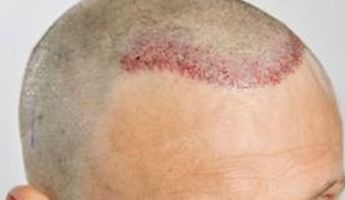
Find the best clinics for Hair Transplant in Turkey
With Medijump you can browse 149 facilities offering Hair Transplant procedures in Turkey. The cheapest price available is $800 in Istanbul, Izmir. And for the cheapest price globally, prices start from $126 in Egypt.
Hair Transplant in Istanbul
Price: $ 800
Hair Transplant in Antalya
Price: $ 1,035
Egypt offers the best prices Worldwide
Price: $ 126
VİPESTETİK, located in Karsiyaka, Izmir, Turkey offers patients Hair Transplant procedures among its total of 4 available procedures, across 2 different specialties. Currently, there's no pricing information for Hair Transplant procedures at VİPESTETİK, as all prices are available on request only, whilst the national average price is approximately $1,737. All procedures and treatments are undertaken by just a small team of specialists, with 2 in total at the Hospital, and they are accredited by TTB - Turkish Medical Association
Haista Turkey, located in Levent Mahallesi, Istanbul, Turkey offers patients Hair Transplant procedures among its total of 17 available procedures, across 3 different specialties. Currently, there's no pricing information for Hair Transplant procedures at Haista Turkey, as all prices are available on request only, whilst the national average price is approximately $1,737. There is currently a lack of information available on the specialists practicing at the Hospital, and they are not accredited by any recognized accreditations institutes
My Hair Center Atasehir, located in Levent Mahallesi, Istanbul, Turkey offers patients Hair Transplant procedures among its total of 4 available procedures, across 1 different specialties. Currently, there's no pricing information for Hair Transplant procedures at My Hair Center Atasehir, as all prices are available on request only, whilst the national average price is approximately $1,737. All procedures and treatments are undertaken by just a small team of specialists, with 2 in total at the Hospital, and they are not accredited by any recognized accreditations institutes
Anatoliahair, located in Levent Mahallesi, Istanbul, Turkey offers patients Hair Transplant procedures among its total of 3 available procedures, across 1 different specialties. Currently, there's no pricing information for Hair Transplant procedures at Anatoliahair, as all prices are available on request only, whilst the national average price is approximately $1,737. There is currently a lack of information available on the specialists practicing at the Hospital, and they are not accredited by any recognized accreditations institutes
Dr. Tulunay Plastik Cerrah, located in Levent Mahallesi, Istanbul, Turkey offers patients Hair Transplant procedures among its total of 21 available procedures, across 2 different specialties. Currently, there's no pricing information for Hair Transplant procedures at Dr. Tulunay Plastik Cerrah, as all prices are available on request only, whilst the national average price is approximately $1,737. All procedures and treatments are undertaken by the lead specialist at the Hospital, and they are not accredited by any recognized accreditations institutes
Anatolia Med Travel, located in Levent Mahallesi, Istanbul, Turkey offers patients Hair Transplant procedures among its total of 17 available procedures, across 2 different specialties. Currently, there's no pricing information for Hair Transplant procedures at Anatolia Med Travel, as all prices are available on request only, whilst the national average price is approximately $1,737. All procedures and treatments are undertaken by the lead specialist at the Hospital, and they are not accredited by any recognized accreditations institutes
YeniHair, located in Levent Mahallesi, Istanbul, Turkey offers patients Hair Transplant procedures among its total of 5 available procedures, across 1 different specialties. Currently, there's no pricing information for Hair Transplant procedures at YeniHair, as all prices are available on request only, whilst the national average price is approximately $1,737. All procedures and treatments are undertaken by the lead specialist at the Hospital, and they are accredited by TTB - Turkish Medical Association
Serap Perk Hair Transplantation Center, located in Levent Mahallesi, Istanbul, Turkey offers patients Hair Transplant procedures among its total of 3 available procedures, across 1 different specialties. Currently, there's no pricing information for Hair Transplant procedures at Serap Perk Hair Transplantation Center, as all prices are available on request only, whilst the national average price is approximately $1,737. All procedures and treatments are undertaken by just a small team of specialists, with 2 in total at the Hospital, and they are not accredited by any recognized accreditations institutes
Look to Health, located in Levent Mahallesi, Istanbul, Turkey offers patients Hair Transplant procedures among its total of 2 available procedures, across 2 different specialties. Currently, there's no pricing information for Hair Transplant procedures at Look to Health, as all prices are available on request only, whilst the national average price is approximately $1,737. All procedures and treatments are undertaken by the lead specialist at the Hospital, and they are not accredited by any recognized accreditations institutes
International Medical Care - Bariatric, located in Karsiyaka, Izmir, Turkey offers patients Hair Transplant procedures among its total of 17 available procedures, across 3 different specialties. Currently, there's no pricing information for Hair Transplant procedures at International Medical Care - Bariatric, as all prices are available on request only, whilst the national average price is approximately $1,737. All procedures and treatments are undertaken by the lead specialist at the Hospital, and they are not accredited by any recognized accreditations institutes
- Home
- Turkey
Compare Before & After Photos of _procedure_photos.phpHair Transplant
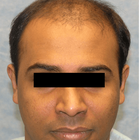
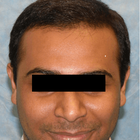
Front view
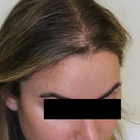
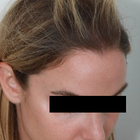
Half-side view
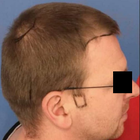
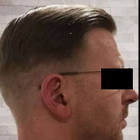
Full-side view
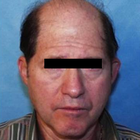

Front view
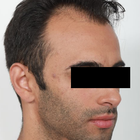
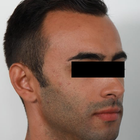
Half-side view
WHY US?
At Medijump, we're making medical easy. You can search, compare, discuss, and book your medical all in one place. We open the door to the best medical providers worldwide, saving you time and energy along the way, and it's all for FREE, no hidden fees, and no price markups guaranteed. So what are you waiting for?

Free

Best Price

Widest Selection

Risk-Free
What you need to know about Hair Transplant in Turkey
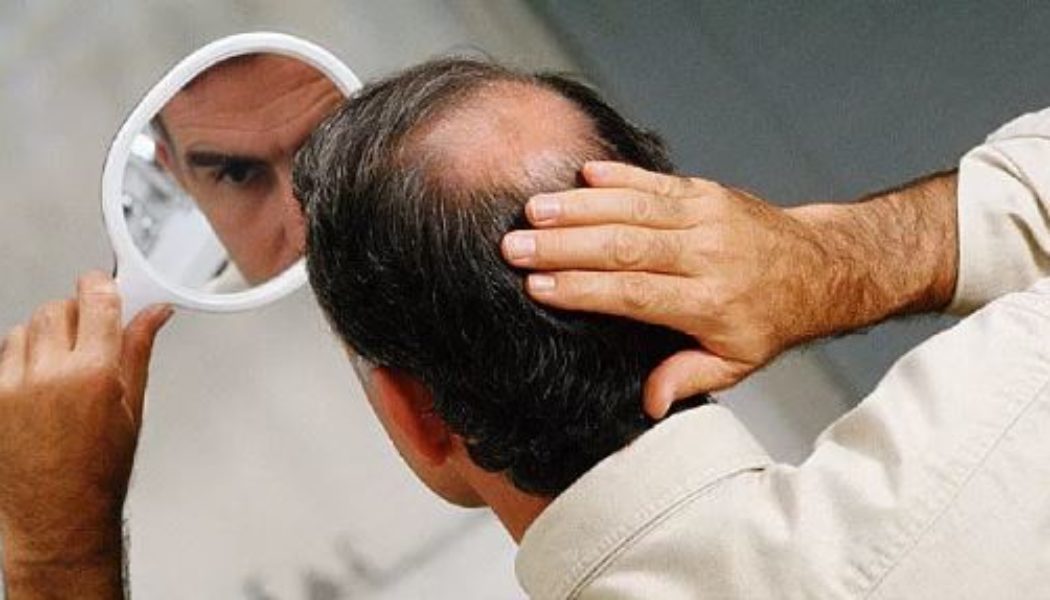
Hair Transplantation, also known as hair restoration surgery, is the surgical process of moving hair follicles from one part of the body that is rich in hair (known as a donor site) and embedding them at the the bald area of the head (recipient site). The medical course of action that aims at addressing hair loss issues and improving aesthetics. While there are many causes of hair loss, the most common reason, especially for men, is genetics. Hereditary hair loss as men age is the number one leading factor of baldness.
It is a minimally invasive procedure, performed under local anesthetic and is most commonly used to treat male baldness, but the technique can also be used to restore eyelashes, eyebrows, beard hair and to fill in scars. The procedure usually lasts between 4 to 8 hours, depending on the number of grafts needed. This procedure is a long-term solution to hair loss, with most patients experiencing significant improvement in hair growth after six months to a year.
Why do people experience hair loss?
We lose an average of 100 hairs a day, however, these hairs are immediately replaced by new hairs growing at the same time. Hair loss can occur suddenly or gradually and it may affect your scalp or your entire body, depending on what’s causing it. Other causes of hair loss may include:
- Stress - a lot of people may experience hair thinning for several months due to a physical or emotional shock. However, this type of hair loss is only temporary.
- Certain Hairstyles and treatments - hairstyles that pull your hair like tight pigtails, ponytails or braids can actually cause traction alopecia. Permanent hair treatments and hot oil treatment may also lead to hair loss; these hair treatments cause inflammation to the hair follicles. If there is scarring, hair loss may be permanent.
- Radiation Therapy - for example, during cancer treatment.
- Certain medical conditions and hormonal changes - in women, hormonal changes due to pregnancy, childbirth menopause or thyroid problems may cause temporary or permanent hair loss. As for medical conditions, hair loss may be due to alopecia, scalp infections like ringworm or a hair-pulling disorder known as trichotillomania.
Sudden hair loss may also be a sign of a specific medical condition that will require treatment. You will need to consult your doctor if you experience more than your usual hair loss whenever you are combing or washing your hair and also if you encounter a sudden patchy loss of hair.
A hair transplant is a common treatment performed on people who are experiencing baldness due to aging and heredity factors. However, if you are completely bald with absolutely no hair left, then this type of treatment may not be applicable for you, as you won't have sufficient donor hair to supply.
What is the cost of Hair Transplant in Turkey?
The cost of Hair Transplant in Turkey is typically influenced by various factors. These may include the experience and reputation of the surgeon, the complexity of your case, and the total number of grafts needed. Moreover, the pricing strategy followed by the medical establishment also plays a significant role. Some clinics charge based on the number of grafts transplanted, while others might price the procedure as a package. The exact price can therefore only be determined in consultation with a trusted clinic. While it can appear costly to some, the Hair Transplant is an investment in one's appearance and self-confidence.
What Does The Procedure Involve?
The hair transplant procedure involves taking hair from your Donor Site and transferring it to the area(s) lacking in hair, the Recipient Site, and a local anesthetic will be applied before the procedure begins to limit any discomfort.
There are two main methods used in a hair transplant procedure:
- Follicular Unit Transplantation (FUT) - strips of tissue will be removed from your donor area, these strips will be cut into individual follicular units. Small cuts will be made on your scalp where the follicular unit grafts will be placed. This method is becoming less popular.
- Follicular Unit Extraction (FUE) - individual hair follicles will be directly extracted from your donor area and moved to your recipient site using a specialist microsurgical needle. FUE is now the preferred technique for hair transplants as it will not leave a linear scar at the back of the head.
Procedures are undertaken by a fully qualified technician and usually involve the extraction of around 3,000 grafts, going up to 4,000. Any more, and it will likely require two separate sittings to complete.
How Long Should I Stay in Turkey for a Hair Transplant Procedure?
Hair transplants are usually performed as an outpatient procedure. Thus, you will be able to go back to your hotel immediately after. Both methods used for Hair Transplant treatments usually take 4-8 hours to complete. With FUE technique, there are no stitches or staples to be removed, so you won't need to stay in Turkey for long after the procedure, just allow a day or two to be sure before traveling home.
You should expect to pay the clinic another visit the day after the treatment so the doctor can remove the bandage, examine the areas of intake and transplantation of follicles, before washing your hair using a special technique that you will learn to perform by yourself. Finally, the doctor will provide you with a special shampoo that will help to restore the skin.
What's the Recovery Time for Hair Transplant Procedures in Turkey?
Your scalp will continue to be sensitive to pain for a few days, during which time you should continue to take the medications provided by the doctor. On top of the pain killers and anti-inflammatory meds, you may also be given antibiotics to lessen the risk of infection, as uncommon as this may be.
You should expect to return to work and your daily routine, including exercise, after 5 days. However, the signs of a hair transplant will remain for at least another 2-3 weeks, at which point the newly transplanted hairs will start to fall out - but don't be alarmed! This is to be expected as you've just had a follicle extraction, so dead hair will simply make way for new hair over the coming weeks and months.
If the average person's hair only grows at a centimeter per month, then it will take some time before you can wear your hair long again. You could expect to display short and consistent hair just 4-6 weeks after the treatment.
What sort of Aftercare is Required for Hair Transplant Procedures in Turkey?
After the procedure is complete, anti-swelling medication and painkillers will be available and you'll be provided with various essentials to see you through the days immediately following. Post-op items may include; specialist shampoo, lotion, multivitamins, a special hat, a headband, neck pillow, and wound dressing.
Having already been provided with your post-op aftercare products, you may also be offered Platelet Rich Plasma (PRP) Therapy to help stimulate the hair follicles and encourage hair growth. This is where a small amount of blood is taken, rich in plasma, which is then injected into the Recipient Site.
What's the Success Rate of Hair Transplant Procedures in Turkey?
The success rate for hair transplants is one of the highest, at 98% and is considered the only truly effective remedy for hair loss.
The effectiveness of Hair Transplant treatments is significantly shaped by the surgeon's expertise who executes the process. A seasoned and competent surgeon employs sophisticated methods to prevent harm to the transplanted hair follicles during the process, which leads to a higher likelihood of success. Additionally, the ability of the surgeon to place the grafts in an attractive manner that resembles natural hair growth further enhances the perceived successfulness of the result.
Beyond the competency of the surgeon, the overall health status and lifestyle choices of the patient greatly impact the treatment's effectiveness. Subpar habits such as excessive smoking and alcohol intake can obstruct the recovery process and influence the result adversely. Illnesses like diabetes can also interfere with the likelihood of success.
Consideration of the donor hair's quality is another aspect that may affect the success of the procedure. Generally, those with robust, plentiful hair in the donor region have a higher success rate as compared to individuals with sparse or poor-quality hair. The availability of more follicles for transplantation yields better results. A detailed examination is carried out before the Hair Transplant to verify the quantity and quality of the donor's hair.
Are there Alternatives to a Hair Transplant?
Laser therapy is one alternative to a hair transplant. During this procedure, a low-level laser device will be used as a treatment for a hair loss specifically caused by genetics. This low-level laser with a wavelength of 650 nanometres can actually stimulate your hair growth. However, long term effects for this type of alternative still remains uncertain.
PRP Therapy is another alternative you can consider. This type of treatment will make use of your own blood to promote hair growth. Your blood will be spun in a centrifuge to separate your blood’s plasma component from your red and white blood cells. Plasma contains many growth factors that promote hair growth when injected into the scalp.
Other non-surgical alternatives could include simply shaving all your hair off, trying other hairstyles or using a wig or hairpiece.
How do FUT and FUE Compare?
The two most common techniques used are the Follicular Unit Transplant (FUT) and the Follicular Unit Extraction (FUE). How do they compare?
1. FUT, also referred to as FUSS (Follicular Unit Strip Surgery), involves the removal of a strip of skin from the back of the head containing lots of hair follicles, which is stitched up and hidden by the surrounding hair. Then the strip of follicles is divided into 500-2,000 tiny grafts containing just a few hairs. These are then embedded across the bald area of the head.
2. FUE does not require a strip of skin to be removed, instead, the hair follicles are individually removed from the donor site and positioned across the bald area in tiny slits created by a scalpel or needle.
What are the Risks Associated with Hair Transplant?
Like any surgical procedure, Hair Transplant carries certain risks, although they are relatively rare and usually minor if performed by a skilled and experienced surgeon.
Some potential risks and side effects could include:
- Scarring is the most common side effect (only applicable to FUT)
- Infections
- Temporary loss of sensation around the surgical sites
- Inflammation of hair follicles (folliculitis)
- Temporary scalp pain, itching, and swelling.
- Unnatural-looking hair growth
Whilst the information presented here has been accurately sourced and verified by a medical professional for its accuracy, it is still advised to consult with your doctor before pursuing a medical treatment at one of the listed medical providers
No Time?
Tell us what you're looking for and we'll reachout to the top clinics all at once
Enquire Now

Popular Procedures in Turkey
Prices Start From $153

Prices Start From $500

Prices Start From $4

Prices Start From $500

Recommended Medical Centers in Turkey for Hair Transplant

- Interpreter services
- Translation service
- Religious facilities
- Medical records transfer
- Medical travel insurance
- Health insurance coordination
- TV in the room
- Safe in the room
- Phone in the room
- Private rooms for patients available

- Interpreter services
- Translation service
- Religious facilities
- Medical records transfer
- Medical travel insurance
- Health insurance coordination
- TV in the room
- Safe in the room
- Phone in the room
- Private rooms for patients available

- Interpreter services
- Translation service
- Religious facilities
- Medical records transfer
- Medical travel insurance
- Health insurance coordination
- TV in the room
- Safe in the room
- Phone in the room
- Private rooms for patients available

- Interpreter services
- Translation service
- Religious facilities
- Medical records transfer
- Medical travel insurance
- Health insurance coordination
- TV in the room
- Safe in the room
- Phone in the room
- Private rooms for patients available

- Interpreter services
- Translation service
- Religious facilities
- Medical records transfer
- Medical travel insurance
- Health insurance coordination
- TV in the room
- Safe in the room
- Phone in the room
- Private rooms for patients available

- Interpreter services
- Translation service
- Religious facilities
- Medical records transfer
- Medical travel insurance
- Health insurance coordination
- TV in the room
- Safe in the room
- Phone in the room
- Private rooms for patients available

- Interpreter services
- Translation service
- Religious facilities
- Medical records transfer
- Medical travel insurance
- Health insurance coordination
- TV in the room
- Safe in the room
- Phone in the room
- Private rooms for patients available

- Interpreter services
- Translation service
- Religious facilities
- Medical records transfer
- Medical travel insurance
- Health insurance coordination
- TV in the room
- Safe in the room
- Phone in the room
- Private rooms for patients available

- Interpreter services
- Translation service
- Religious facilities
- Medical records transfer
- Medical travel insurance
- Health insurance coordination
- TV in the room
- Safe in the room
- Phone in the room
- Private rooms for patients available

- Interpreter services
- Translation service
- Religious facilities
- Medical records transfer
- Medical travel insurance
- Health insurance coordination
- TV in the room
- Safe in the room
- Phone in the room
- Private rooms for patients available
Hair Transplant in and around Turkey
About Turkey
Where East meets West – Turkey is considered to be both Asia and Europe, with 95% of its landmass being located in Asia. Rich in culture and history, a land once inhabited by some of history’s greatest empires, including most recently the Ottoman Empire and long before that, the Roman and Byzantine Empires. Of Turkey’s 1,200+ medical facilities, of which many are JCI-accredited and this includes an even mix of publicly and privately owned hospitals and clinics.
700,000 annual medical tourists are drawn to Turkey each year, traveling from all across the globe, particularly from within Europe and the Middle East, many of which travel for Hair Transplant procedures. Dental, Cosmetic, Bariatric, and Reproductive procedures are most common, including Veneers, Hair Transplants, Gastric Bypass Surgeries, and IVF. Popular medical tourism destinations outside of the capital, Ankara, of course, include Istanbul and other regions like Antalya and Izmir.
Popular Parts of Turkey
With a population of around 85 million, Turkey has a landmass of nearly 800,000 square km. The capital city is Ankara, located inland, however, Istanbul is the most populous and most recognized city in Turkey with some 15 million inhabitants. Straddling both Europe and Asia, the city attracts 13 million tourists each year, making it the fifth most popular tourist destination in the world.
Additional well-frequented locations encompass Antalya nestled in the southern part of the country, as well as Izmir perched in the west. Paradoxically, the eastern region of the country sees less influx of tourists. One major contributing factor is the enduring Kurdish-Turkish conflict, exacerbated further owing to its geographical closeness to conflict-laden nations such as Syria and Iraq.
Sun-chasers seeking a blend of affordability and indulgence invariably find themselves drawn to the southern holiday resorts like Marmaris and Bodrum. These locales are a magnet for those yearning for 5-star luxury hotels, offered at reasonable prices and with all-inclusive perks, for their vacation getaway.
The discovery of the world’s oldest known megalithic site at Gobekli Tepe in the South-Eastern Anatolia Region has cast much doubt over mankind’s ancient history and consequently attracts a sizable number of ‘History Tourists’. This UNESCO World Heritage Site is believed to be over 11,000 years old, built during a time humans were understood to be simple hunter-gatherers.
Weather and Climate in Turkey
Enjoying a Mediterranean location, Turkey's south coast is graced by refreshing sea breezes. Despite this, the summer months from June through August witness soaring heat with temperatures often climbing into the 40s (104°F). The transitional seasons of spring and autumn bring more temperate weather, and winters are quite mild.
Turkey's vast expanse leads to a variety of weather patterns across its regions. The central parts of the country predominantly feature a semi-arid steppe climate, while the northern Black Sea region showcases far milder conditions compared to the southern Mediterranean Sea region.
Do take note of the potential problem of mosquitos and sandflies, particularly during summers in coastal areas. It's advisable to take proper protective measures against them. Though malaria cases are extremely rare, always consult a healthcare professional for appropriate advice before embarking on your trip.
Getting around in Turkey
Istanbul’s famous Ataturk International Airport sits 24 km outside the city and is home to the ever-popular Turkish Airlines. Most other major airlines service Ataturk, which is often used as a stopover destination for travelers between Europe and Asia. All the other major cities are serviced by their own international airports, with several low-cost domestic airlines joining them together, including AtlasGlobal, IZair, Onur Air, Pegasus Airlines, and SunExpress.
For those preferring to travel by land, Turkey has a few express train routes linking the major cities, most notably, Istanbul to Ankara. City buses are reliable and good value, whilst taxis are cheap, but be sure to negotiate the price before beginning any journey.
Tourist Visas in Turkey
Visa restrictions are relatively light, with a 90-day per visit allowance readily available for many nationalities. Still, e-visas need to be procured in advance, for a fee, by travelers hailing from countries such as the US, UK, Australia, China, and Spain. Conversely, passport holders from countries including France, Germany, Russia, and Singapore are granted visa-free entry.
For nationals from India and Pakistan, conditional e-visas are offered upon arrival, but solely at Ataturk International Airport. These visas have a validity of just 30 days. For comprehensive information on visa requirements, it is recommended to visit the Ministry of Foreign Affairs website.
Additional Information
- The Turkish Lira (TRY) is the local currency where $1 USD is worth about 18 TRY, having experienced heavy fluctuations recently.
- ATMs are in abundance across Turkey and accept all bank cards (Visa, Mastercard). Credit card and Amex payments are accepted in most restaurants and outlets, with more local food vendors or food market stalls, only accepting cash. Tipping is expected as service is not included at restaurants, this is usually between 5-10%. Taxi rides tend not to be tipped, just rounded up.
- Turkish is the local language with the eastern Kurds speaking Kurdish too. English is spoken by many locals working in tourist locations, including major cities.
- Islam (99.8%) is by far the main religion in Turkey, with a tiny Christian population (0.2%). Turkey is, however, a secular country where there is no ‘official’ state religion. Various elements of traditional culture remain, with much being modernized or ‘Westernized’.
- There are many public holidays, most notably Labor Day and Commemoration of Ataturk in May, Ramazan Feast in June, Kurban Bayrami in August, and Republic Day at the end of October.
Popular Searches
- Plastic Surgery in Thailand
- Dental Implants in Thailand
- Hair Transplant in Thailand
- Breast Augmentation Thailand
- Gastric Sleeve in Thailand
- Gender Reassignment Surgery in Thailand
- Laser Hair Removal in Bangkok
- Botox in Bangkok
- Dermatology in Bangkok
- Breast Augmentation in Bangkok
- Coolsculpting in Bangkok
- Veneers in Turkey
- Hair Transplant in Turkey
- Rhinoplasty in Turkey
- Stem Cell Therapy in Mexico
- Rhinoplasty in Mexico
- Liposuction in Mexico
- Coolsculpting in Tijuana
- Rhinoplasty in Korea
- Scar Removal in Korea
- Gastric Sleeve in Turkey
- Bone Marrow Transplant in India
- Invisalign in Malaysia
- Plastic Surgery in the Dominican Republic
- Tummy Tuck in the Dominican Republic
- Plastic and Cosmetic Surgery in Poland
- Rhinoplasty in Poland
- Hair Implant in Poland
- Dental Implants in Poland
- IVF in Turkey




